Keir Starmer’s ‘historic’ US deal may be more about avoiding tariff chaos than pushing exports. So what’s in it for the food industry?
It was hailed as a “landmark” agreement by Keir Starmer and a “breakthrough” by Donald Trump. But for the food sector, last Thursday’s UK-US trade deal left us with more questions than answers.
That Starmer chose a Jaguar Land Rover factory to announce the “first of its kind” deal spoke volumes about his priorities. The government has placed a heavy weight on the reduction of damaging tariffs for car, steel and aluminium exporters.
But Starmer was also keen to assure the public that food standards would not be sacrificed on the altar of trade. The PM stressed “we had red lines on food and SPS standards and we kept to those red lines”.
The pledge should put an end to the threat of hormone-treated beef imports, or the chlorinated chicken influx that has dominated discourse around a potential transatlantic trade deal for almost a decade.
However, the government has agreed to allow some non-hormone-treated US beef imports. And it has also allowed potentially problematic tariff-free access to the UK’s biofuel market.
Plus, this ‘deal’ is unlike the archetypal free trade agreement, such as the full FTA struck with India last week. UK market access for US pork, seafood, rice and (yes) poultry products could still be on the table as the UK and US thrash out the finer details.
So, with much yet to be agreed, can the government be trusted on those ‘red lines’? And what’s in this for UK food producers?
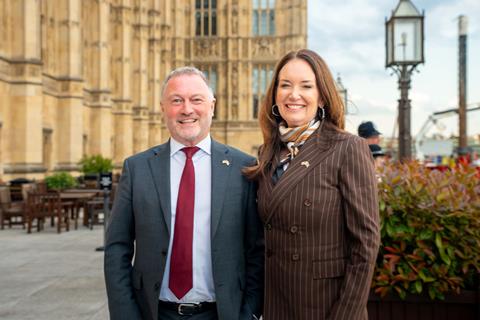
Is it even a real trade deal?
US agriculture secretary Brooke Rollins hailed the “historic deal”, after many years without progress, at a London press conference this week. The agreement would “lower tariffs, remove trade barriers, increase market access, and strengthen co-operation on economic security”, she said.
Rollins added she wanted to ensure “fair market” opportunities for a slew of other US agricultural products.
“Food security is national security,” she proclaimed, echoing the Labour government’s own (much-criticised) mantra. “The UK, for example, really relies on China and Russia for your seafood. America has extraordinary best-in-class seafood. Let’s talk about that.”
That call for further trade talks – and potentially further concessions – after the signing of a deal was telling. So says Commons Efra Committee chair Alistair Carmichael, who, like Tory leader Kemi Badenoch, questions just how positive the agreement really is for the UK.
Read more:
-
What India and US trade deals tell us about the new world order
-
Aldi promises no softening of meat and poultry standards even if regulations ease for trade deals
-
Animal welfare standards in focus as US and India trade deals loom
Carmichael sees it as a “renegotiation of tariffs” rather than a full trade deal. “The government has been slow to come out with detail [on what else is in the deal]. And at that point I become instinctively suspicious.”
The Lib Dem MP also points to the lack of the customary parliamentary scrutiny over the agreement.
Not only is that “not good for the business of politics”, it also places further pressure on the government’s already frayed relationship with the food and farming sector, he says, following damaging rows over Inheritance Tax, National Insurance increases and the botched early closure of the Sustainable Farming Incentive.
NFU president Tom Bradshaw points out the government “has been true to its word on standards” – so far, at least. However, he believes the government has “more work to do” when it comes to rebuilding the trust in government that has been shattered in recent months.
How will the beef deal work?
Under the deal, the US can export 13,000 tonnes of hormone-free beef, while the UK will gain reciprocal access to the US market for the first time.
This is described by Defra as a big win, and “a major opportunity for British farmers to increase exports to the world’s largest consumer market, helping them to grow their businesses”.
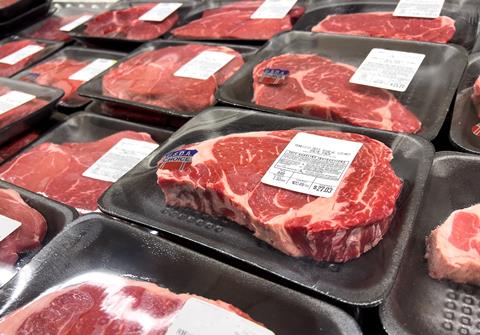
But in practice, this is little more than a pipe dream, suggests British Meat Processors Association CEO Nick Allen. He highlights the already tight supply in the UK beef sector and record high farmgate prices.
“We haven’t got that amount to send to them at the moment, and if we did, we would probably sell it on the home market,” he says. Plus, access to the US market isn’t even tariff-free, he points out. Most UK exports to the US will still be subject to the 10% baseline tariff introduced by Trump in April.
Granted, 13,000 tonnes is relatively small when compared with Australia’s current tariff-free limit of 20,000 tonnes per calendar year, and the UK’s overall beef imports of 241,000 tonnes in 2024.
But Allen warns the sector is still in the dark on details such as carcase balance. “If that 13,000 tonnes came in as striploins, for example, it could completely undermine the value end of our market,” he says. “We’ve asked government to nuance these things.”
Read more:
-
Hormone-treated beef explained: is it a problem or part of an oven-ready trade deal?
-
Can a UK-US trade deal avoid ‘dreaded’ chlorinated chicken?
-
Why do Americans treat their poultry with chlorine?
There is also the question of how robust US supply chains are in ensuring beef is not hormone-treated, says Bradshaw.
“We’ve been looking at their systems, but what we don’t know is whether US hormone-free means ‘whole of life’, and what sort of testing regime [on the UK side] there will be to ensure hormones aren’t used.”
There is one consolation for UK producers, however. For now, Allen does not envisage a flood of US imports.
“They currently import about 390,000 tonnes of beef from Australia every year, so they don’t have enough to send to us,” he suggests.
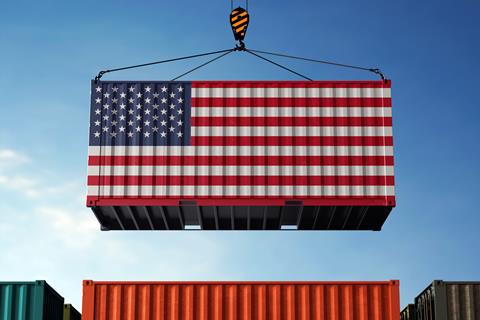
Pork and chicken
The government has stressed chlorinated chicken “will remain illegal”. However, Rollins this week said pork and poultry were “at the front of the line” when asked what other US agrifood exports were under consideration.
In light of these ambitions, the National Pig Association has called on the UK government to “establish core production standards that would apply to both domestically produced and imported food”.
Concerns were also raised by the British Poultry Council. While it accepts Rollins’ claims this week that “only about 5% of our chicken is actually treated with chlorine”, the industry body warns the vast majority is still treated with an antimicrobial wash. This suggests it is “still standard practice to clean up at the end”, says its CEO Richard Griffiths.
“Chlorinated chicken is just shorthand for this type of practice,” he adds, which is at odds with UK production standards. “So I don’t think there’s anything to change the level of concern we’ve had before.”
The UK poultry sector is “happy to compete on a like-for-like basis. But if we allow imports produced to lower standards, that’s unfair competition”, Griffiths adds.
In light of such continuing industry concerns over further US access, Aldi this week became the first major retailer to pledge to “stick to its existing high food safety and welfare standards, even if current regulations are watered down to align with international trade deals”.
Ethanol/CO2 fears
As The Grocer reports this week, the apparent eleventh-hour bouncing of Starmer into agreeing to UK access for US ethanol producers – apparently while watching his beloved Arsenal – means sovereign production of bioethanol could now be “f****d”, according to one senior food sector source.

The new zero-tariff quota of 1.4 billion litres of the biofuel, which matches the UK’s total output, also “brings into question the integrity of the UK’s CO2 gas supply chain”, warns Bradshaw. The gas is predominantly sourced as a byproduct from bioethanol production. Given previous CO2 gas crises have almost crippled the food sector – as seen in both 2018 and 2021/22 – such an oversight into the implications of this concession is “absolutely scandalous”, Bradshaw adds.
“The government has clearly been side-swiped by this,” says the BMPA’s Allen.
“It was quite apparent after the deal announcement there was not a full understanding of the situation. This is the danger of doing things in a rush.”
What happens next?
Allen says the government now “has to look at this” in order to keep the bioethanol plants running, while Bradshaw is urging government to publish impact assessments to “really understand what is potentially being given away”, which is particularly relevant given the ongoing nature of talks on further market access.
Efra chair Carmichael is more scathing. Leaving the UK potentially “exposed to the import of CO2 gas is a massive risk to food security”, he argues.
It’s “symptomatic of the lack of real-world experience in government”.
“We shouldn’t be caught by surprise by these types of things and we now need answers fast.”
The government this week said it was “assured there is currently no shortage of CO2” and would intervene if needed on the issue.
But what Bradshaw describes as a “rushed trade deal” now raises fresh questions about the government’s handling of the food sector, Carmichael says.
“This was too important to be nodded through. The House should be given a vote – which is what Labour used to say all the time,” he adds.
Carmichael sums up: “There is a job of work to be done, with clause by clause scrutiny, and the Efra Committee will be doing just that.”







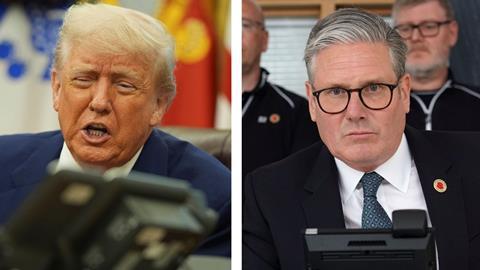
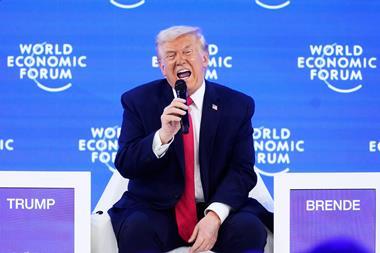

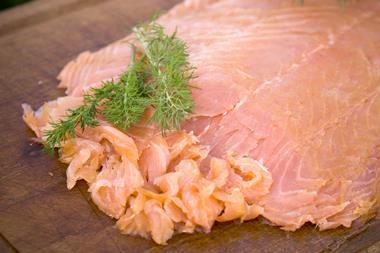
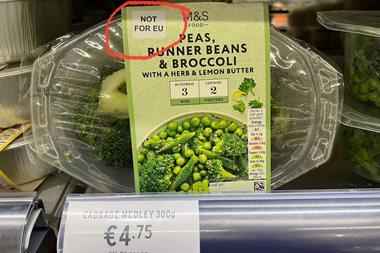

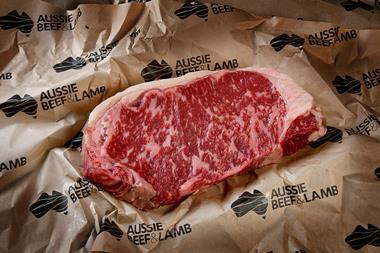






1 Readers' comment